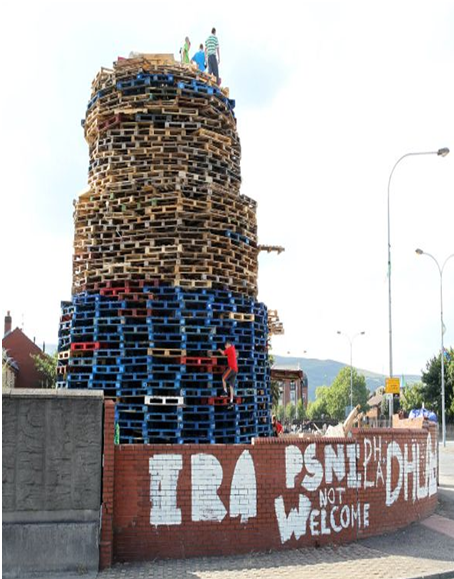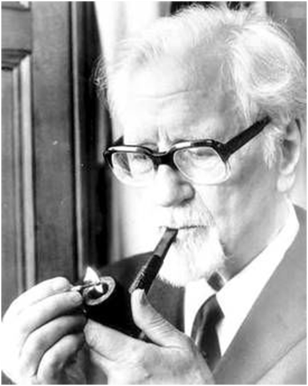OPINION
Hostages to the Past or Architects of the Future?
Whilst we are constantly bombarded with the notion that there is a moral responsibility on us all to deal with the destructive legacies of our past, which continue to weigh heavily on society, we must also be conscious that dealing with the past is not just a moralistic consideration. It is also a responsibility that we have undertaken to complete within the mandate of the Belfast Agreement, thus making it a legislative, political and societal obligation within what was an International Agreement.
Whilst the Belfast Agreement was constructed from within that moral framework, it is important that we also recognise that with the introduction of the specific architecture and out-workings of that Agreement, it can be argued that it has since left the moralistic domain behind and has become an exclusively legal, political and legislative blunt instrument, thus allowing little moralistic input to frame or interpret delivery. Indeed, the Agreement itself contained nothing more than a benign obligation to deal with our past constructed in ambiguity. It must also be recognised that a large section of the population does not feel that it has any particular moral obligation placed upon it to address the past, electing instead to turn the page and focus on a new future.
There is an underlying concern that the energy and resources (and particularly the financial muscle) required to deal with the past could in fact subtract from the energy, resources and dynamism needed to build a new democratic society. The argument behind the opposing moral-obligation approach, is, if we fail to effectively deal with that past, not only will it continue to impact on our present, but it will also stall the development of a new future for Northern Ireland, and condemn us to repeat the mistakes of our past. This view advocates that unless changes are made now, the next generation will become further polarised by active hatred and hostility that will eventually begin to express itself in conflict, with future generations consigned to carry our burden as their inheritance. Whilst we all share that particular concern, the fact remains that many of us go beyond simply expressing that philosophy and translate those moral obligations into actively working at a communal level to de-glamorise conflict, de-commission mindsets and re-stabilise and reconcile communities.

Internment Bonfire being built next to Divis Street, West Belfast
Loyalism has not resiled from its moral responsibility and in this regard the expression of ‘abject and true remorse to all innocent victims’ which accompanied the announcement of the Loyalist ceasefire by the CLMC, best encapsulates an adherence to and observance of those moral obligations. These words have translated into actions, with decommissioning, demobilisation & de-militarisation, all important contributions that have helped cement the fragile peace.
Principles and practice.
In principle, Loyalism may not be particularly opposed to a process of dealing with the past. Indeed, this principle has even managed to extend into practice, where much effort to deal with particular difficult legacies of the past within Loyalist communities has already been expended. We can clearly see this effort in the high-resolution indicators represented by the removal and re-design of paramilitary murals across many Loyalist areas, particularly intended to prevent the next generation aspiring to conflict as it’s inheritance, and thus ensuring that no further combatants (or victims) are created. It can also been seen in the genuine reconciliation work being conducted with Republicans and other Loyalist groupings of different affiliation, at a communal level. This has fostered improved relations within and across former conflict communities. This has resulted in a significant reduction in violence/tensions and much reconciliatory progress at that local level.In this regard, Loyalism is particularly dealing with a past located and anchored in the present, and laying the foundations in that present, to raise the aspirational bar towards a better future.
It is important to reflect that most of this effort has remained almost exclusively outside the bright glare of the public spotlight and thus remains undetectable. This is particularly so in regard to the internecine and communal aspects of conflict. This requires the application of extreme sensitivity and confidentiality mindful of a potential negative community impact which could prove divisive.
The over-arching concerns.
Loyalism is not unaware of the implications of dealing with the past on the macro-political level, or the particular potential impact that could reverberate across those communities that have borne the brunt of the conflict. There are many in civic-society who tend to remain more reticent (and blinded) to the over-arching concern that the energy and resources, and particularly the financial-muscle required to deal with the past, could in fact subtract from the energy, resources and dynamism needed to build a new democratic society. Some overlook too that the new dispensation and the political architecture could be put at risk some of those once at the heart of the conflict, and now at the heart of government. This could lead to the potential unravelling of the Agreement itself thus anchoring us more firmly in the past.
“This is my country; my grandfather came hereand raised his walls and fenced the tangled wasteand gave his years and strength into the earth”(A verse from ‘The Bloody Brae” by Ulster poet John Hewitt encapsulating our collective crisis of identity.)

John Hewitt
The Loyalist Experience at a Communal Level
